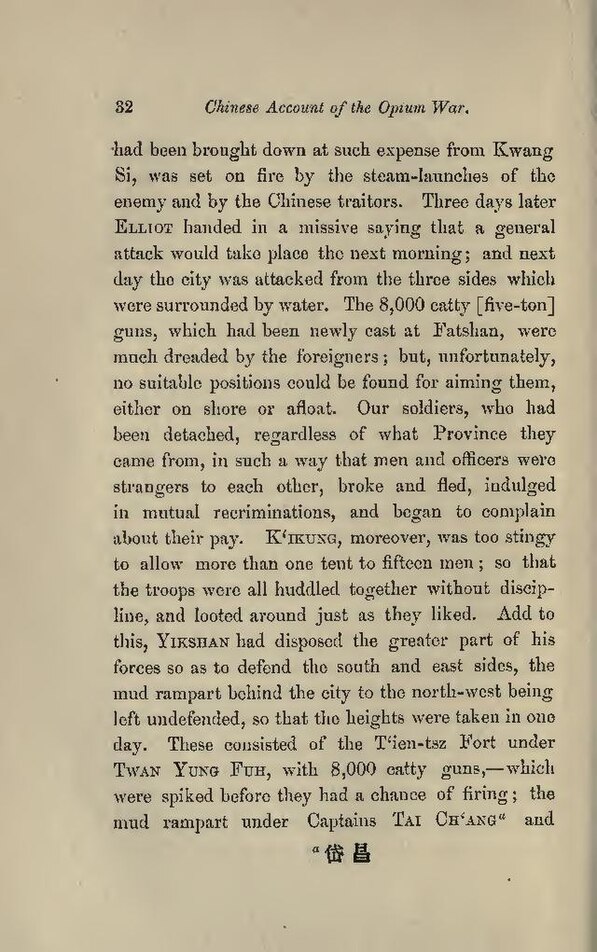had been brought down at such expense from Kwang Si, was set on fire by the steam-launches of the enemy and by the Chinese traitors. Three days later Elliot handed in a missive saying that a general attack would take place the next morning; and next day the city was attacked from the three sides which were surrounded by water. The 8,000 catty [five-ton] guns, which had been newly cast at Fatshan, were much dreaded by the foreigners; but, unfortunately, no suitable positions could be found for aiming them, either on shore or afloat. Our soldiers, who had been detached, regardless of what Province they came from, in such a way that men and officers were strangers to each other, broke and fled, indulged in mutual recriminations, and began to complain about their pay. K‘ikung, moreover, was too stingy to allow more than one tent to fifteen men; so that the troops were all huddled together without discipline, and looted around just as they liked. Add to this, Yikshan had disposed the greater part of his forces so as to defend the south and east sides, the mud rampart behind the city to the north-west being left undefended, so that the heights were taken in one day. These consisted of the T'ien-tsz Fort under Twan Yung Fuh, with 8,000 catty guns,—which were spiked before they had a chance of firing; the mud rampart under Captains Tai Ch‘ang[1] and
- ↑ 岱昌
